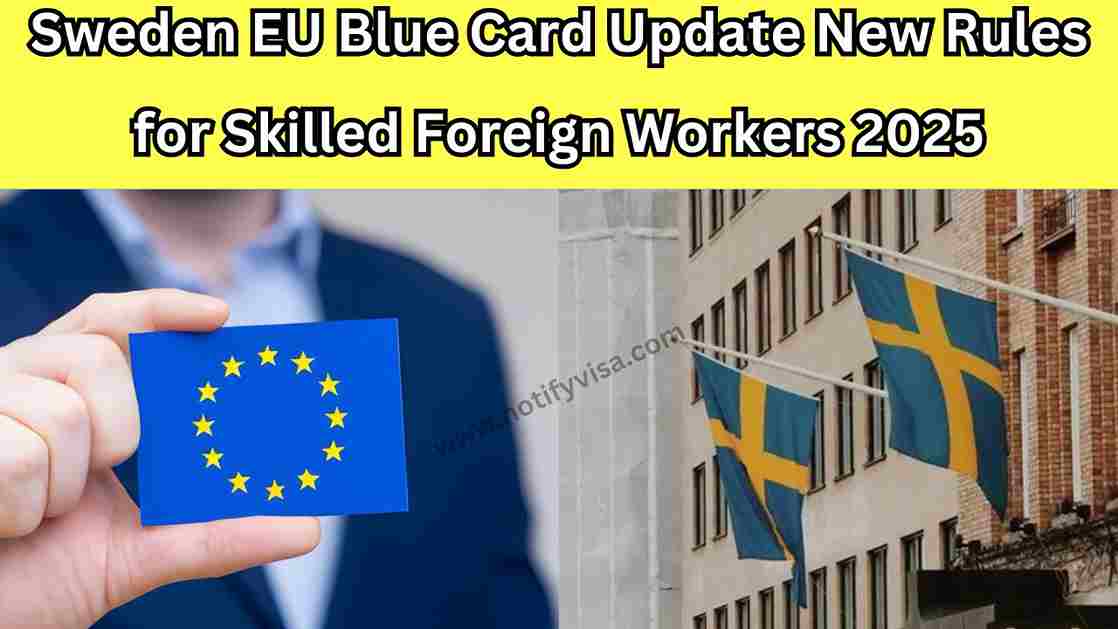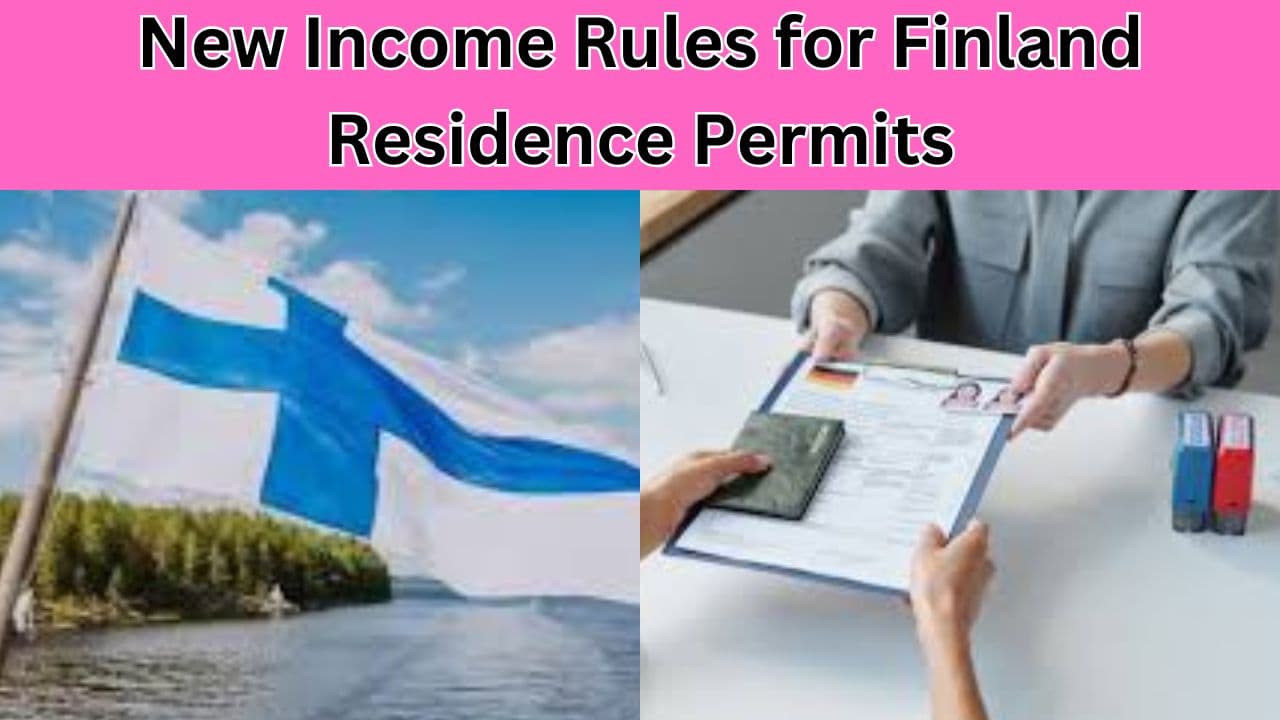Sweden is changing its EU Blue Card guidelines to balance its movement strategies and make them more attractive to highly skilled professionals. The suggested adjustments attempt to keep up with global talent by lowering compensation requirements, increasing certification, and streamlining transitions between jobs.
If approved, the improvements the government has suggested to the EU Blue Card would take effect on January 1, 2025. The plan includes, among other things, a reduced monthly salary edge to SEK 49,875; expanded eligibility requirements beyond specialists and expanded opportunities to transition from other types of home assistance to the EU Blue Card. When legislation adopts the modifications, we’ll send out a detailed warning.
According to a report provided by the Local, the compensation limit to be eligible for an EU Blue Card will be reduced from 1.5 times the typical monthly compensation in Sweden to 1.25 times the typical monthly compensation by the current criteria.
People with a work and residency permit in Sweden or for other reasons may transfer to the EU Blue Card under the unused mandate. This avoids the need for Blue Card holders to apply for a new EU Blue Card if they change jobs after coming to Sweden.
Check Also: How to Apply for Sweden Job Seeker Visa
The EU Blue Card: What is it?
For highly skilled individuals, the EU Blue Card may be a home and work permit designed for non-EU nationals seeking to conduct business in Europe. It will allow professionals to live and work in an EU member state if they have a job offer in a skilled field. The prerequisites are as follows:
- A minimum of five years of relevant experience or a college degree equivalent to 180 credits.
- An offer from a company that pays 1.5 times what the national average is.
- A small company agreement for six months.
Benefits of the EU Blue Card include intra-EU adaptability, which makes it easier for professionals to travel and work in different EU countries.
- Essential Idea for Putting the New EU Blue Card Directive into Practice
- The charge is intended to replace the 2009 form with the current EU Blue Card Order. For exceptionally talented non-EU workers who fulfill certain requirements, the EU Blue Card may be a residence and employment visa. According to Sweden’s suggestions, more qualified professionals should be allowed to access and use the Blue Card.
A component of the contemporary plan is the adoption of the following major changes:
- Reduced Compensation Edge: The new regulations make it easier for highly skilled remote specialists to achieve the financial qualification requirements by lowering the specified compensation to 1.5 times the average net wage in Sweden.
- Shorter employment Contract Requirement: The underused proposal lowers the previous requirement and advances short-term professionals by allowing foreign workers to obtain an EU Blue Card with a reasonable six-month employment contract.
- Expanded Qualification: A wider range of professionals, including those from industries and sectors currently excluded from the program, will be able to apply under the revised EU Blue Card Mandate.
- Flexible Exchanging: Under the new regulations, professionals with EU Blue Cards will be able to move to another highly qualified position without having to apply for a new Blue Card, promoting greater career flexibility.
- Smooth Transitions: The modifications will simplify the process and promote labor mobility inside the EU by making it easier for foreign workers with different types of home licenses to convert to the EU Blue Card.
- Sweden will appear to be more competitive in luring the top talent from across the globe if these improvements are confirmed.
A Few Benefits of the EU Blue Card:
- Residence and Employment Rights: In Sweden and other EU countries that participate, EU Blue Card holders are permitted to reside and work. This allows specialists to live and work legally anywhere in the EU without needing individual grants for every nation.
- Reunification of Families: EU Blue Card holders are permitted to live in Sweden with their family members, including friends and kids. With this simplified procedure, families can quickly reunite and take advantage of the same residency rights.
- Intra-EU Portability: The ability to relocate to another EU country for employment without having to deal with a drawn-out visa application process is one of the major advantages of the EU Blue Card. This flexibility clears up work-related issues throughout the EU.
- Path to Lasting Home: Professionals who have held an EU Blue Card for a specific amount of time typically three to five years may be eligible to apply for permanent residency in Sweden or other EU countries, which would give them and their families long-term stability.
Conclusion:
The revised Blue Card Order fixes the shortcomings of the previous framework and indicates that it will meet the EU’s future labor showcase needs, making it a widely attractive option for talented professionals. While the EU Blue Card provides a more seamless path for skilled professionals to work and reside in the country, these suggested reforms make Sweden a more attractive destination for top talent globally.




YourFurnitureChoice Promo Code Get an instant $10 off on your next YourFurnitureChoice order!
BUX Currency Exchange and currency converter. All foreign exchange rates update every ten minutes.
Divine Equine & Design Logo Wear Promo Code Get an instant $10 off on your next Divine Equine & Design Logo Wear order!